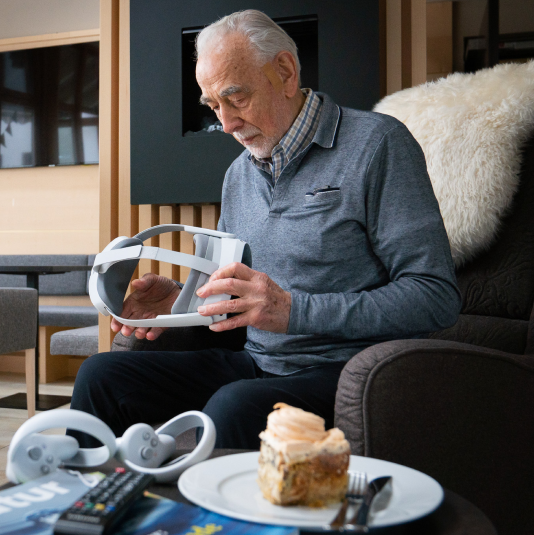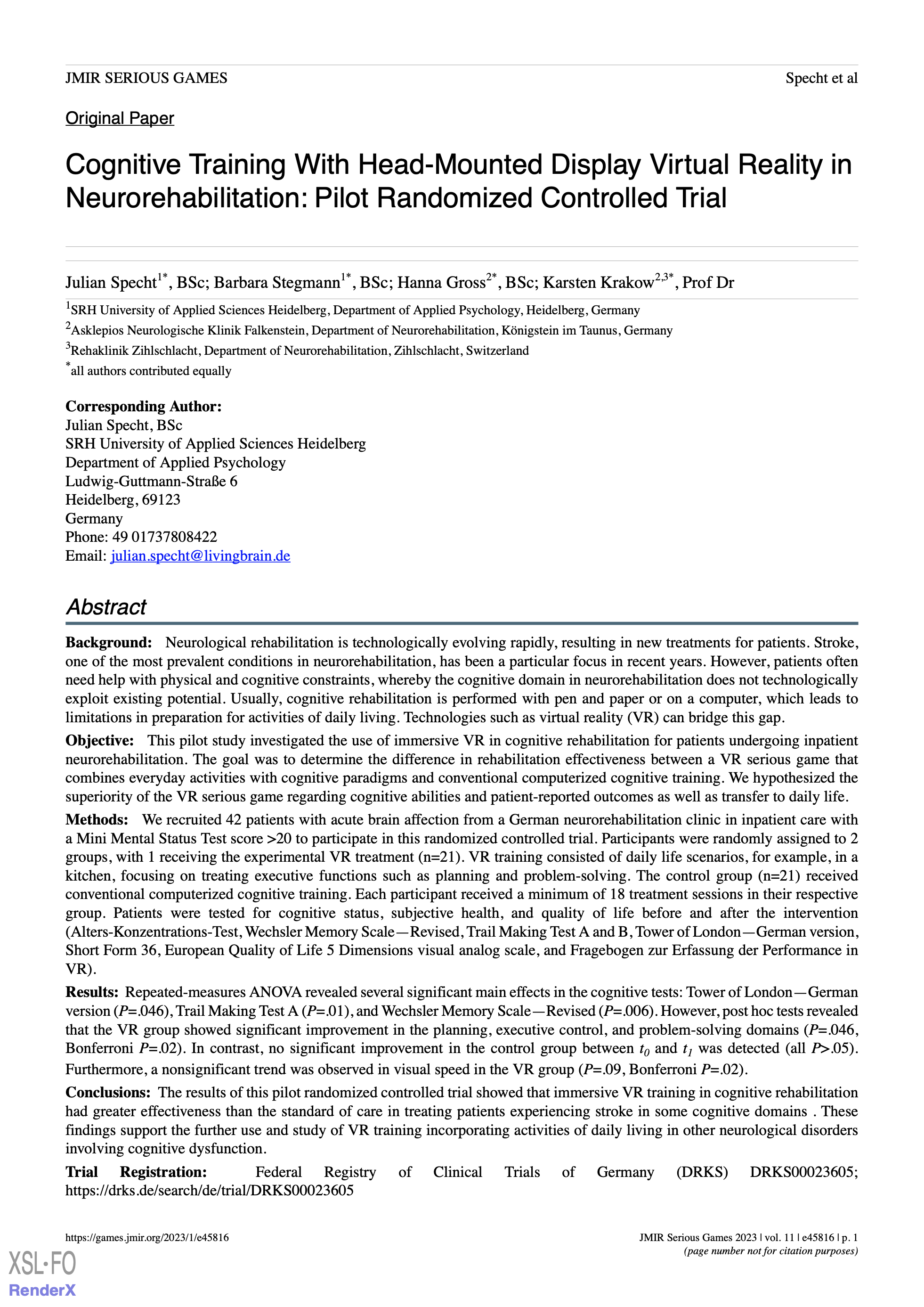
Our user experience study
For us, a scientific foundation of all our products is indispensable. That’s why we conduct studies ourselves and incorporate their results into product development. In our first study, we investigated how patients react to the use of our VR application teora® mind after a stroke.
The study results show that treatment with head-mounted displays (virtual reality glasses) is well accepted by older adults in general and stroke patients in particular. The positive attitude towards virtual reality therapy was independent of previous contact with virtual reality.

Clinical study: teora mind outperforms standard therapy
A randomized controlled trial was conducted on the effectiveness of teora mind. The treatment results of VR therapy with teora mind were compared with those of conventional standard treatment. Standard therapy currently involves abstract exercises on the computer, such as putting the steps to build a snowman in the correct order.
In the study, 42 stroke patients were randomly assigned to two treatment strands: 21 patients received standard therapy, while 21 other patients were treated with teora mind. They received an average of 18.7 treatment sessions of 30-45 minutes each over the 4-6 week period. Subsequently, the changes in the area of cognitive abilities were measured: The VR group achieved significant improvements in executive functions, particularly in the areas of planning and problem solving. No improvements were observed in the control group with standard therapy. Both groups started at the same initial level.
No serious device- or procedure-related adverse events occurred during the study. In addition, the treatment was remarkably well received by the patients as well as by the treating therapists and physicians.
The results suggest that immersive VR neurotherapy with teora® mind is a safe and effective treatment option for patients* with post-stroke cognitive deficits.
The full study was published in the Journal of Medical Internet Reseach: Serious Games and can be viewed here.
In order to improve our product and validate it for further areas of application, we are already working on further research projects. In addition, we are always on the lookout for innovative ideas and approaches to solutions.
Do you have an idea for a joint research project?
Feel free to contact us to talk about a specific implementation!
Further relevant studies on the topic of VR and medicine
In addition to conducting our own studies, we naturally always keep an eye on the current state of research. A selection of relevant studies on the use of virtual reality applications in medicine can be found below:
